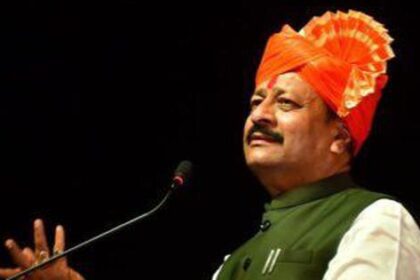Changes in EPFO withdrawal policies raise concerns among members and opposition leaders regarding financial security.
The Union government has made significant adjustments to the Employees’ Provident Fund Organisation (EPFO) withdrawal policies. Under the new guidelines, members will now need to wait 12 months after losing their jobs before they can apply for full withdrawal of their provident fund accounts. Previously, this period was only two months. Additionally, pension account withdrawals will only be permitted after a waiting period of 36 months, an increase from the former two-month requirement.
Currently, EPFO members who have been unemployed for at least one month can withdraw up to 75% of their provident fund balance. Those who remain unemployed for two consecutive months are eligible to withdraw the entire balance. The amendment to these rules was decided upon by the Central Board of Trustees, which is the apex decision-making body of the EPFO, chaired by Union Labour Minister Mansukh Mandaviya.
According to a statement from the Ministry of Labour and Employment, members will now be required to maintain a minimum balance of 25% in their provident fund accounts at all times. The ministry indicated that this requirement would allow members to benefit from the higher interest rates offered by the EPFO, currently at 8.25% per annum, while also taking advantage of compounding benefits to build a substantial retirement fund.
However, the revised guidelines have drawn criticism from various quarters. Opposition members and experts have expressed concerns that the longer settlement period could pose challenges for individuals who lose their jobs and need immediate access to their funds. Trinamool Congress MP Saket Gokhale criticized the government’s decision, describing it as “shocking and ridiculous,” and characterized it as an “open theft of salaried people’s own money.” He highlighted the difficulties faced by individuals who may struggle to pay bills and equated monthly installments (EMIs) while being unable to withdraw their own funds for an extended period.
Gokhale further asserted that the government’s actions reflect a panic response to rising unemployment, a consequence of what he termed the government’s poor economic policies. KE Raghunathan, a former member of the Central Board of Trustees, voiced similar concerns, calling the decision “deeply concerning and regressive.” He noted that this change undermines the foundational purpose of social security for salaried individuals, particularly those living paycheck to paycheck.
Moreover, the Ministry of Labour and Employment has reduced the categories for fund withdrawals from 13 to three: essential needs (such as illness, education, and marriage), housing needs, and special circumstances. Previously, members had to provide reasons for partial withdrawals under the ‘Special Circumstances’ category, which often led to claim rejections. The new rules allow members to apply without specifying reasons under this category.
The new policies also permit up to ten partial withdrawals for education and five for marriage, a notable increase from the previous allowance of three combined withdrawals for these purposes. Raghunathan cautioned that these changes could leave many individuals with minimal retirement savings and no safety net when their income stops. He emphasized that provident fund savings should not be viewed as short-term liquidity solutions, but rather as a means of providing dignity and financial security at the end of a worker’s career.








